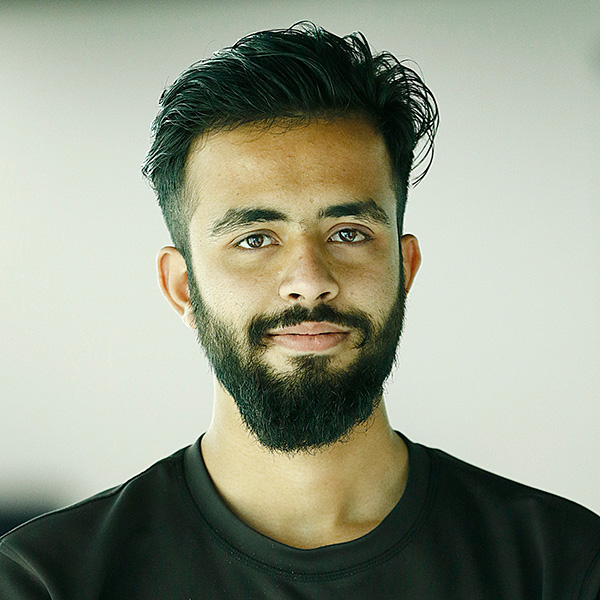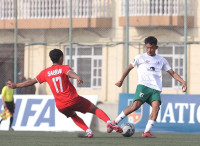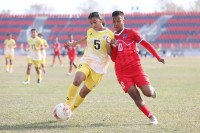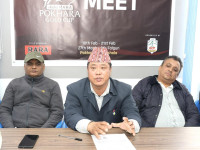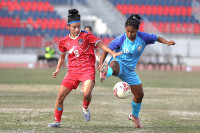Football
SAFF charts ambitious roadmap to uplift regional football
The football governing body bets on youth, clubs, and futsal as it looks to deepen football’s roots and raise standards across South Asia.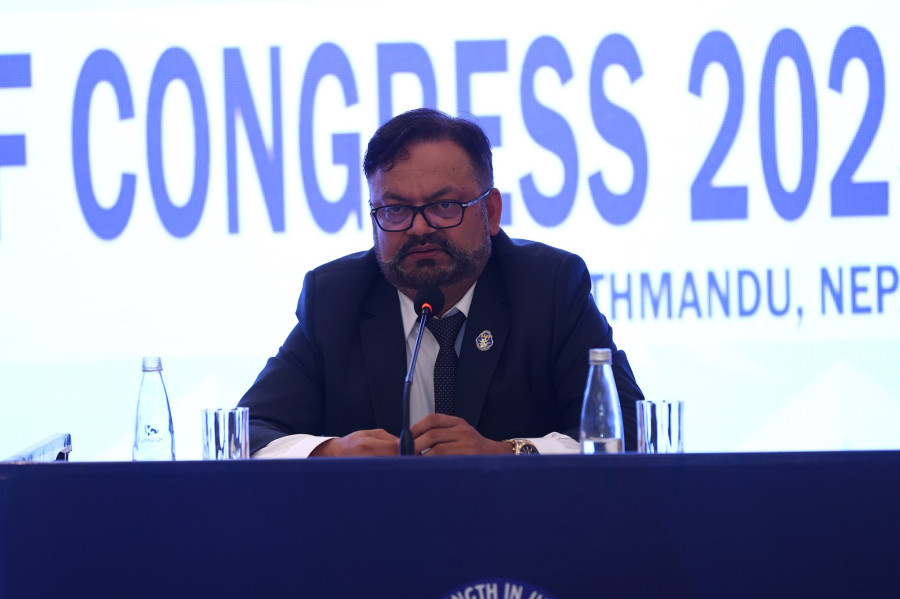
Nayak Paudel
The South Asian Football Federation (SAFF) revealed a set of plans during its Congress in Kathmandu on Saturday, aiming to build a more competitive and grassroots-driven football structure in the region.
With representation from all seven member associations—from Nepal, India, Pakistan, Bangladesh, Bhutan, Sri Lanka, and the Maldives—the Congress saw unanimous support for all of the proposed agendas.
Among more than a dozen agendas, the Congress accepted the activity report of the SAFF General Secretary, financial statement of 2024, budget for 2025 (USD 2.48 million) and amendment to Article 31.3 and 31.4 of the SAFF Statutes.
Similarly, the Congress unanimously backed new tournaments aimed at developing the sport in the region. Among them, SAFF has proposed its first-ever Futsal Championship, along with plans to invest in producing technical officials and coaches for the format.
“We have also proposed a school-level SAFF tournament to boost our grassroots,” SAFF’s General Secretary Purushottam Kattel said. “For the senior level, we plan a club-level tournament in both men’s and women’s categories.”
SAFF will be studying the academic calendars of schools in different countries to prepare a possible window for the junior-level event.
“Regarding the club-level SAFF tournament, we will be coordinating with the Asian Football Confederation (AFC) for a proper calendar,” Kattel said. SAFF plans a year-long club tournament in the men’s category, while they plan to have the event organised in the women’s category first.
“The first edition of the women’s club competition will be organised in Nepal in November this year,” Kattel informed.
For the first time, SAFF opened its Congress to media personnel, allowing full access to the proceedings, except for a brief, 10-minute closed-door discussion among member associations.
“We opened the Congress to the media to ensure transparency,” said Kattel. “We only requested privacy during the final discussion as it wasn’t relevant for public coverage.”
While SAFF has unveiled an ambitious set of plans, fulfilling them might not be easy.
To begin with, the tournaments face a major challenge—ensuring participation from all the member countries, especially given the longstanding India-Pakistan hostilities that came to a head earlier this month.
On April 24, SAFF postponed the 15th SAFF Championship slated for June. It was planned in a home-away format, a move that would have revolutionised football in South Asia. While the official reason cited was the need for more preparation, the decision came just days after the Pahalgam terror attack in Kashmir, India. For now, it has been postponed until 2026.
“We can find a neutral venue for the two teams,” said Kattel when asked about the ongoing India-Pakistan tension. Despite their geopolitical friction, both countries were aligned in supporting SAFF’s development agendas during the Congress.
Pakistan, notably, did not participate in the SAFF U-19 Championship that concluded less than a week ago in Arunachal Pradesh, India.
Speaking to the Post on the condition of anonymity due to the sensitivity of the matter, several SAFF members and officials agreed that if not for the India-Pakistan divide, football—and sports in general—in South Asia could have advanced at a much faster pace, fostering unity across the region.
Meanwhile, SAFF also proposed working with its member associations to increase the number of Pro License coaches in the region.
“Pro License coaching courses are very expensive, which has led to a shortage of qualified coaches in South Asia,” said Kattel. “SAFF is planning to provide financial support to help member associations enrol their coaches in the programme.”
Addressing the Congress virtually, SAFF President Kazi Md. Salahuddin said the federation should step up its game. “We must do more,” he said. “We must raise our standards and create more opportunities (in football) in our region.”
Moreover, the SAFF Congress accepted the candidacy of Ms. Zimbiri, chairperson of the women’s football committee at the Bhutan Football Federation (BFF) and BFF’s executive committee member, as a member of the SAFF Executive Committee. She was elected unopposed.




 8.85°C Kathmandu
8.85°C Kathmandu